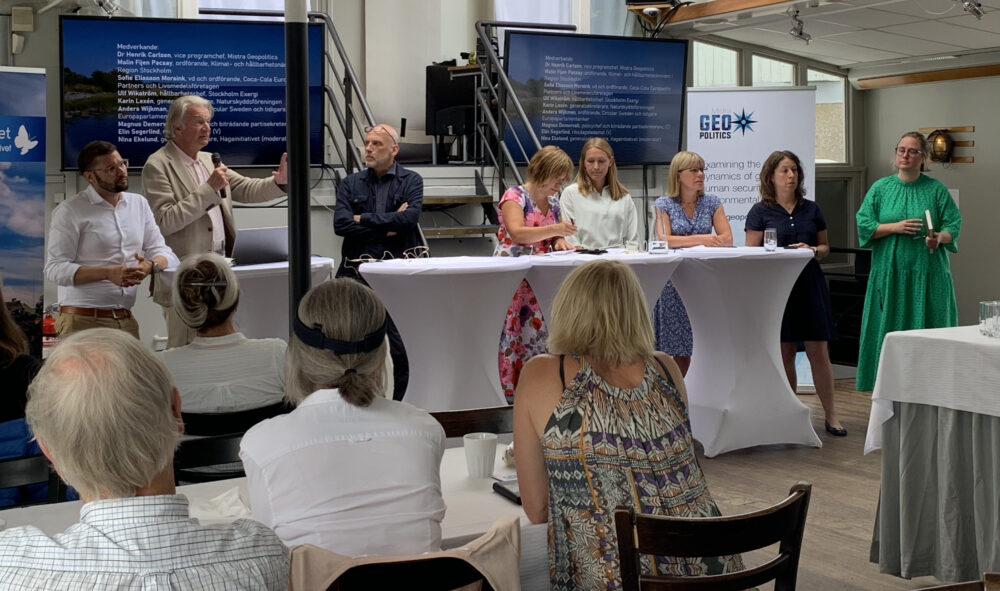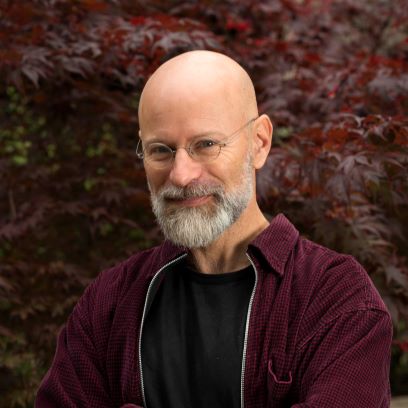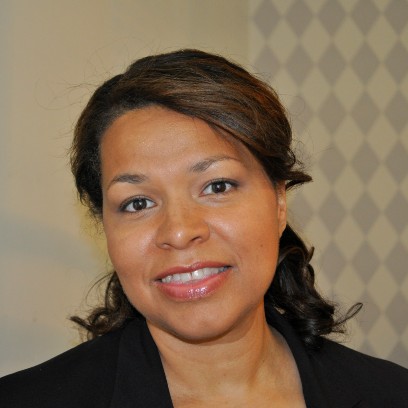The 2022 election is imminent in Sweden and among political parties it can be seen as the political response is short-term solutions to the complex geopolitical events of climate change. Arranged by Hagainitiativet and Mistra Geopolitics a seminar was held in Almedalen, Visby, and the high-level panel discussed how politics can equip society for a rapid climate change.
Mistra Geopolitics Co-Director Henrik Carlsen started the discussion by pointing out that we now clearly see how geopolitical factors and perspectives are intertwined with environmental and climate change. Therefore, science and policy – and business – need to work closely to better navigate an uncertain future.

Malin Fijen Pacsay, Chairman of the Climate and Sustainability Committee in the Stockholm Region (MP), can see a willingness to change in the business sector and believes it is also there where much of the change will take place.
From a business perspective, Sofie Eliasson Morsink CEO for the Coca-Cola Europacific Partners and Chair of the board of the Swedish Food Federation, emphasises that we need to make long-term decisions and it is important that we all have the same goals.
“Sustainability work must be more integrated in all decision-making processes both business and political decisions, then we can get more steering speed“, says Sofie.
How can politics adapt to better handle geopolitical and climate change challenges?
Ulf Wikström, Sustainability Manager, Stockholm Exergi, believes that we have not succeeded in showing the severity of the climate crisis.
“Backing from climate- and environmental obligations is not the way to go. We must accelerate and reduce our risk exposure”, says Ulf Wikström.
Henrik Carlsen pointed out that people are not afraid enough of the environmental crisis, when compared with the pandemic and the war in Ukraine.
“To bring about progress in climate and environment action, we need political vision from all ideologies about what a sustainable society would look like.”
At the stage we are with climate change, politics must dare to be visionary presenting proposals for change and show that sustainable living will be a better life for all, expressed Elin Segerlind, Member of Parliament (V).
Building on the discussion, Karin Lexén, Secretary General for the Swedish Society for Nature Conservation, continued by adding we need to show that we are very many who think that politics are going far too slow. “Broad alliances are needed, along with a long-term policy with clear goals and objectives” said Karin Lexén.
Magnus Demervall, Head of Policy and Deputy Party Secretary (C), emphasised that Sweden could be the green battery of Europe, but we need to sharpen the goals within politics, speed up the permit processes and create incentives for new technologies to help the business community. The short-term political decisions harm the business community.
Anders Wijkman, Chairman of Circular Sweden and former MEP continued to state that we need a green tax transition. From his perspective, the EU has tried to handle many challenges at the same time but member states in some cases do not follow through.
“It must cost to use nature. It’s too cheap with virgin materials compared to recycled materials as it looks today”, said Anders Wijkman.
Nina Ekelund, Director General at the Haga Initiative summarized the debate concluding that everybody understands the geopolitical challenges and the climate crisis, but there seems to be a lack of action in politics. Ending on a positive note; there is a clear will to change and move forward.
For more information contact

Henrik Carlsen




